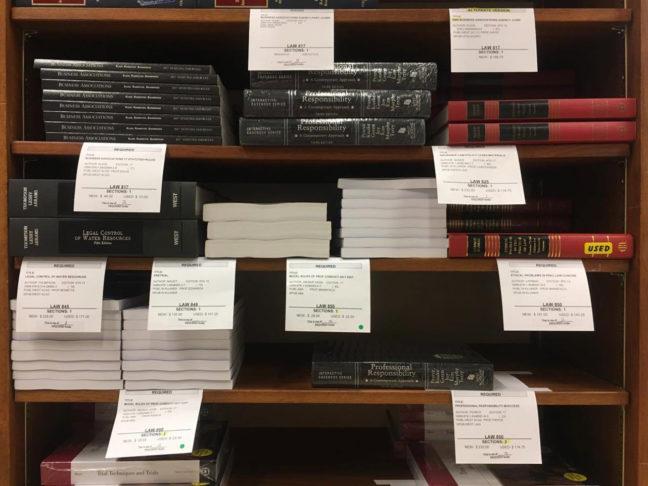For over 50 years, The Badger Herald has been delivering independent student journalism. Each story we put out is very real and impactful to students on campus. But now, The Badger Herald also exists in a fictional story.
Los Angeles-based writer Peter Mehlman may be most famous for his work on the ‘90s sitcom “Seinfeld,” where he’s credited with famous jokes like ‘yada yada yada,’ ‘shrinkage,’ ‘spongeworthy’ and ‘double-dipping,’ but he’s also a freelance columnist with bylines in the New York Times, The Atlantic, The LA Times and more. And, he’s an author.
Mehlman’s third novel, called “#MeAsWell” tackles cancel culture and focuses on a fictional sports journalist who just happens to be a University of Wisconsin alumnus and a former Editor-in-Chief of The Badger Herald.
Though Mehlman went to the University of Maryland himself, he said he’s always had a soft spot for Wisconsin, because while he applied, he didn’t go because it was too far away.
“I always had this romantic vision of the University of Wisconsin and Madison. In the 60s, it was a pretty politically active school,” Mehlman said. “So I did the necessary research to make the main character have a past at Wisconsin.”
After graduating from Maryland, Mehlman worked in sports journalism at the Washington Post and then at ABC under Howard Cosell. But ironically enough, he said working there, under a huge name in sports, made him realize sports journalism wasn’t really his calling.
Mehlman said he felt like he needed to work on larger issues than sports, which from time-to-time could feel trivial. He said seeing now, for example, NBA players using their platform to stand up for issues they care about resonates with him, and he’s always been interested in NCAA player issues.
“I know now a lot of athletes, especially NBA players, are talking so much about how this is all bigger than basketball,” Mehlman said. “It’s actually very gratifying to see that.”
Once he realized he liked watching sports more than he liked reporting on them, Mehlman moved to Los Angeles, where a chance run-in with Larry David got him the job writing for “Seinfeld.”
Mehlman said the switch from journalism to sitcom writing proved pretty difficult, but he eventually caught on. The show ran until 1998. Now, Mehlman works as an essayist and novelist.
“In journalism, you’re always looking out at the world,” Mehlman said. “At ‘Seinfeld,’ you’re basically looking within yourself trying to grasp what you’re thinking about and what little things are flying through your head that could result in a story. So it was a completely different thing.”
For “#MeAsWell,” Mehlman said he was inspired by his curiosity about the day-to-day lives of people caught up in “cancel culture.”
He said in this day in age, people can get caught up in social media, and instead of fostering an environment where prominent figures can learn after making a mistake, internet communities become hostile toward well-intentioned people.
“I have very mixed feelings about political correctness because on the one hand, obviously it’s good that people are much more sensitive about the lives and beliefs and concerns of others,” Mehlman said. “And yet … we’re all very imperfect people, and picking up on everybody’s little foibles is what comedy is all about. And it’s kind of, like, not allowed anymore.”
Mehlman said he always strives to write humor that will stay funny eternally. He said he hasn’t had too much firsthand experience with cancel culture, in part because sometimes, publishers won’t accept stories they feel might face backlash.
Because people make mistakes, Mehlman said instead of outright canceling someone, there should be a sense of forgiveness.
“I think we should have a sense of forgiveness. You know, tell these people what they did wrong,” Mehlman said. “Give them a second chance.”
Mehlman said just like the fictional “#MeAsWell” protagonist, he got his start writing at his college paper, and he found the experience he gained there paramount to his future career.
For aspiring writers, Mehlman recommends trying to get as much work published as possible — because you never know who might see it. That also means, he said, writing as much as possible.
“Luck is a big, big factor of any successful writing career,” Mehlman said. “What you have to do is maximize your chances of getting lucky. And I think the way to do that is to get your stuff out there as much as you can and just keep on turning it out.”


